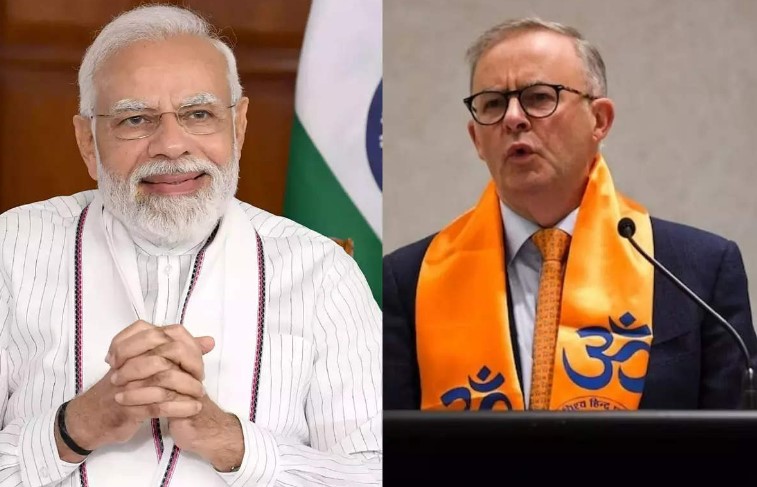Virendra Pandit
New Delhi: With the Australian Parliament approving the pact with India on Tuesday, the two democracies will now implement the Free Trade Agreement (FTA) on a mutually convenient date.
“BREAKING: Our Free Trade Agreement with India has passed through parliament,” Australian Prime Minister Anthony Albanese said in a tweet.
The India-Australia Economic Cooperation and Trade Agreement (AI-ECTA) required ratification by the Australian Parliament before its implementation. In India, the Union Cabinet approved such pacts.
Welcoming the development, India’s Union Commerce and Industry Minister Piyush Goyal tweeted: “Delighted that India-Australia Economic Cooperation & Trade Agreement has been passed by the Australian Parliament.
“A result of our deep friendship, it sets the stage for us to unleash the full potential of our trade ties & spur massive economic growth,” he added.
Last week, the Joint Standing Committee on Treaties of Australia recommended the Australian government should ratify the pact.
After the ratification, the two sides will decide on a date to implement the pact, and customs authorities will also issue a notification a day before the implementation, the media, quoting an official, said.
The FTA will provide duty-free access to the Australian market for over 6,000 broad sectors and items from India, including textiles, leather, furniture, jewelry, and machinery.
Under the pact, Australia is offering zero-duty access to India for about 96.4 percent of exports (by value) from day one. This covers many products that currently attract 4-5 percent customs duty in Australia.
Labor-intensive Indian sectors, which would gain immensely, include textiles and apparel, a few agricultural and fish products, leather, footwear, furniture, sports goods, jewelry, machinery, electrical goods, and railway wagons.
In 2021-22, India’s goods exports to Australia stood at USD 8.3 billion and imports aggregated at USD 16.75 billion. The FTA would reduce this trade imbalance.
Goyal had earlier stated that the agreement would help increase the bilateral trade from the current USD 27.5 billion to USD 45-50 billion in the next five years.
With Australia in, India is now awaiting the FTA with the United Kingdom as well.
British Prime Minister Rishi Sunak, on Saturday last, said his government is committed to working “as quickly as possible” towards a successful conclusion to the ongoing FTA talks with India. The majority of the substantive negotiation conversations over the FTA were completed at the end of last month.
At a House of Commons session on Thursday last week, he cited his first meeting with his Indian counterpart Narendra Modi in Bali, Indonesia.
“I discussed the FTA with India, and both the Prime Minister of India and I committed our teams to work as quickly as possible to see if we can bring a successful conclusion to the negotiations.”
“Without negotiating all these things in public, I am pleased that the majority of the substantive negotiation conversations were concluded by the end of October. We will now work at pace with the Indian teams to try to resolve the issues and come to a mutually satisfactory conclusion,” he added.
The British PM also reiterated the UK government’s stance since the Diwali deadline for the FTA was missed, that he would not “sacrifice quality for speed” because it is important to take the time to get trade deals right.
Labour’s Indian-origin MP Tanmanjeet Singh Dhesi questioned another Indian-origin leader, Home Secretary Suella Braverman’s “incendiary remarks” that put the FTA deal with India in doubt during the short-lived British PM Liz Truss’ government.

